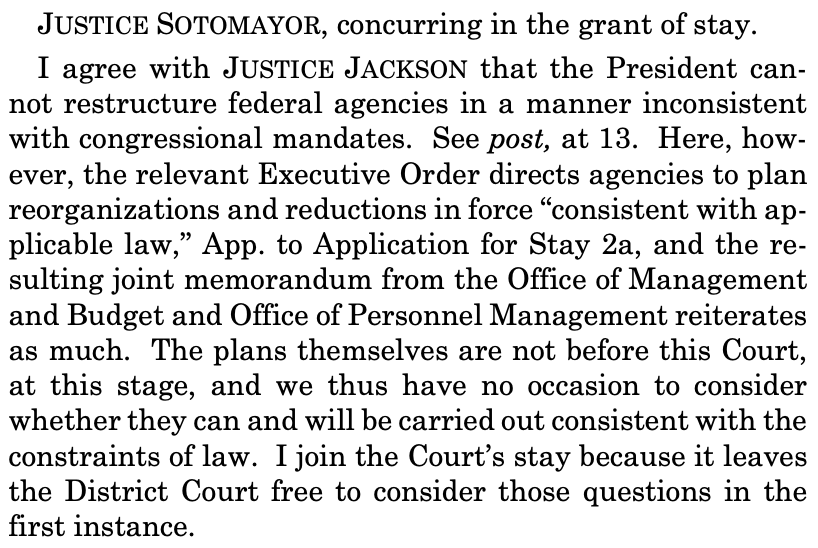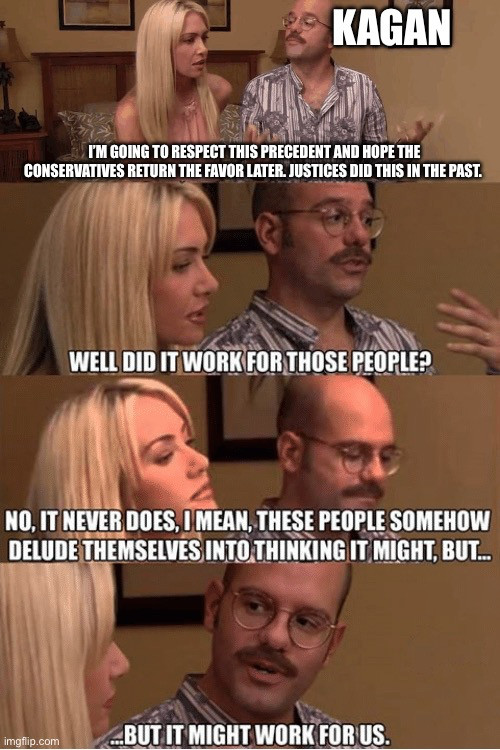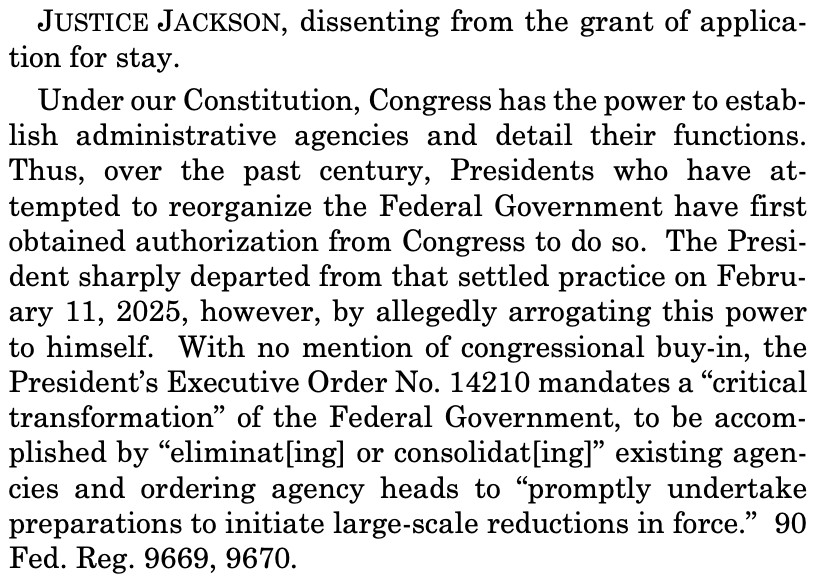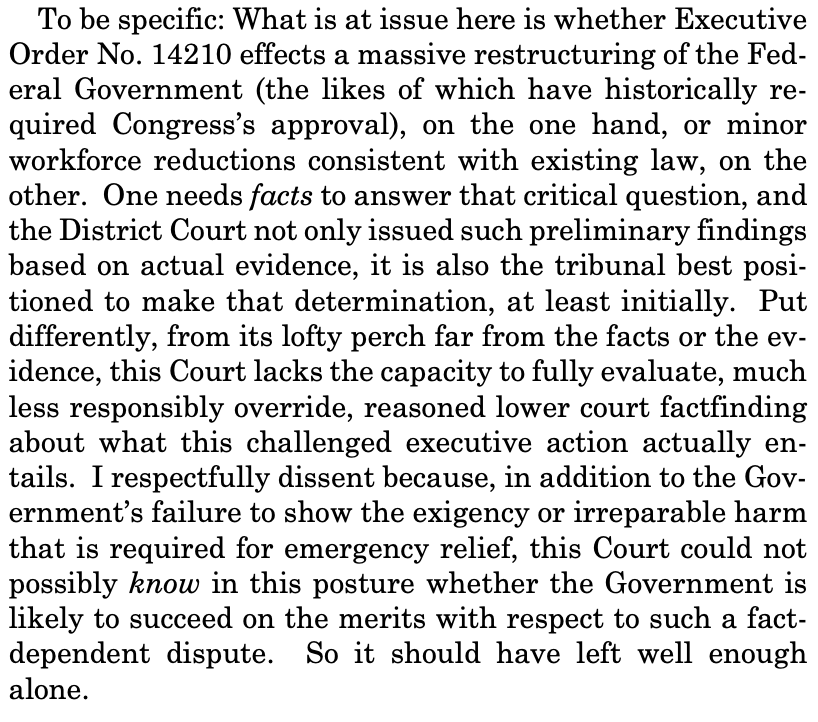
At the end of Chinatown, as our protagonist watches the bad guys win, he’s pulled away and admonished, “Forget it, Jake. It’s Chinatown.” The phrase lives on as a warning when corruption runs so deep that there’s no fighting it. In the film, the bad guy is a rich real estate baron who manipulates a government agency and bilks senior citizens for his personal profit. Despite the pervasive criminality, he’s actually backed up by law enforcement who aid and abet his dirty work. In case that sounds like anyone you know.
Also the bad guy is a pedophile sexually attracted to his daughter. Do with that information what you will.

How Legal Intelligence Is Bringing In A New Era Of Litigation For Plaintiff Firms
Darrow is building a new category of legal intelligence — one that helps firms understand complex legal landscapes earlier, more clearly, and with greater confidence.
In Trump v. American Federation of Government Employees, the Supreme Court again invoked the unaccountability shield of its shadow docket to strike down a preliminary injunction issued in the Northern District of California that had blocked Executive Order No. 14210, Trump’s 5-page edict that turned the federal government over to someone named “Big Balls” with a mission to slash the federal workforce. While the executive branch can obviously hire and fire agency staff, the plan to wholesale gut departments approved and funded by Congress without congressional action runs afoul of well-established precedent, not to mention the “Major Questions Doctrine” that conservative legal scholars invented to prevent Democratic presidents from taking basic executive action through an agency (like, say, DOGE) without the express written consent of the House, the Senate, and probably Major League Baseball. Given that legal landscape, the Supreme Court obviously supported the injunction…
PSYCHE!
The District Court’s injunction was based on its view that Executive Order No. 14210, 90 Fed. Reg. 9669 (2025), and a joint memorandum from the Office of Management and Budget and Office of Personnel Management implementing that Executive Order are unlawful. Because the Government is likely to succeed on its argument that the Executive Order and Memorandum are lawful — and because the other factors bearing on whether to grant a stay are satisfied — we grant the application.
Likely to succeed… why? The Court declines to say. But the government is likely to succeed, we are assured, in the two paragraph order authorizing the dismantling of the federal government while the merits can be hashed out later. Might this strategy result in irreparable harm? The unsigned majority opinion does not even mention that part of the injunctive relief equation.
They must have forgotten it like it was a prong of the First Amendment or something.
Justice Ketanji Brown Jackson penned the lone dissent, though Justice Sotomayor wrote a concurrence that might as well have said, “Forget it Ketanji, It’s Chinatown.”

This seems like Sotomayor running back her strategy from the D.V.D. v. DHS case. In that case, also a shadow docket opinion, Sotomayor wrote a lengthy dissent that took it upon itself to characterize the majority opinion. Hey, if the Republican justices want to shirk responsibility with unsigned, unexplained orders, why not take the initiative? Signaling to the lower courts that the government had flunked procedure and only appealed the preliminary injunction — arguably too broad because it applied to “any alien” — and not the remedial order — specific to certain individuals already sent to Africa. Therefore, the sparsely reasoned shadow docket opinion did not properly stop the remedial order. It had the benefit of being both clever and accurate. The Supreme Court went ahead and issued a follow up clarifying that they were going to stay the remedial order too. They based it on dicta from an inapposite 1947 decision. Really.
Here, Sotomayor does much the same but in a concurrence, leaning into the idea that the executive order required DOGE to come up with a plan first and so, she reasons, the district court can’t stop DOGE from coming up with a plan to fire everyone and the courts can decide if that plan is an illegal wreck later.
Kagan, by the way, joined the D.V.D. clarification and seemingly this opinion too. It appears that she’s employing a strategy she’s used before where she sides with the majority on formal, respect for precedent grounds in hopes that they’ll return the favor.

But Justice Jackson wasn’t willing to let it slide. The executive order at issue might technically only ask Musk’s minions for a plan, but the ask is in itself an assault on the separation of powers and the Court offered nothing to explain how the preliminary injunction failed to clear all the established considerations. Unfortunately, as Jackson explains, the common sense and well-settled legal principles ran afoul of a powerful obstacle: “this Court’s demonstrated enthusiasm for greenlighting this President’s legally dubious actions in an emergency posture.”

Jackson expounds upon that history, discussing both the multiple times that Congress authorized presidents to embark on reorganization efforts, and the times when presidents ASKED to perform minor government reorganization and Congress told them no. Including, for the record, Donald Trump who in his first term understood — who are we kidding… who had people working for him then who understood — that the White House couldn’t embark on an effort to reorganize the government after Congress refused.
It will shock you not at all to learn that Jackson also managed to remember the irreparable harm prong of the test.

The folks who might “know” the answer to these questions are the district judges themselves. The fact that Justice Jackson once served as a district judge shines through in the disdain she has for two-step-removed appellate jurists substituting their reasoning for a trial judge without the benefit of the record or the courtesy of a real opinion. “[H]ubristic and senseless,” to use her words. But, hey, maybe Amy Coney Barrett can channel her experience of grading papers to scold Jackson again for daring to know how trial courts actually work.
It’s easy to say Justice Jackson has the better of the case here since she’s the only one bothering to defend her position, but it’s hard to see how the majority would get ahead on any of these arguments. The last time they tried Jackson on injunctions they refused to “dwell” on her arguments. At least ignoring them altogether avoids further embarrassment. But maybe, just maybe, we should demand the Supreme Court put in the limited effort required to try to respond?
Ah. There I go again. I can hear it softly over my shoulder, “Forget it, Joe. It’s One First Street.”
(Opinion on the next page…)
 Joe Patrice is a senior editor at Above the Law and co-host of Thinking Like A Lawyer. Feel free to email any tips, questions, or comments. Follow him on Twitter or Bluesky if you’re interested in law, politics, and a healthy dose of college sports news. Joe also serves as a Managing Director at RPN Executive Search.
Joe Patrice is a senior editor at Above the Law and co-host of Thinking Like A Lawyer. Feel free to email any tips, questions, or comments. Follow him on Twitter or Bluesky if you’re interested in law, politics, and a healthy dose of college sports news. Joe also serves as a Managing Director at RPN Executive Search.
